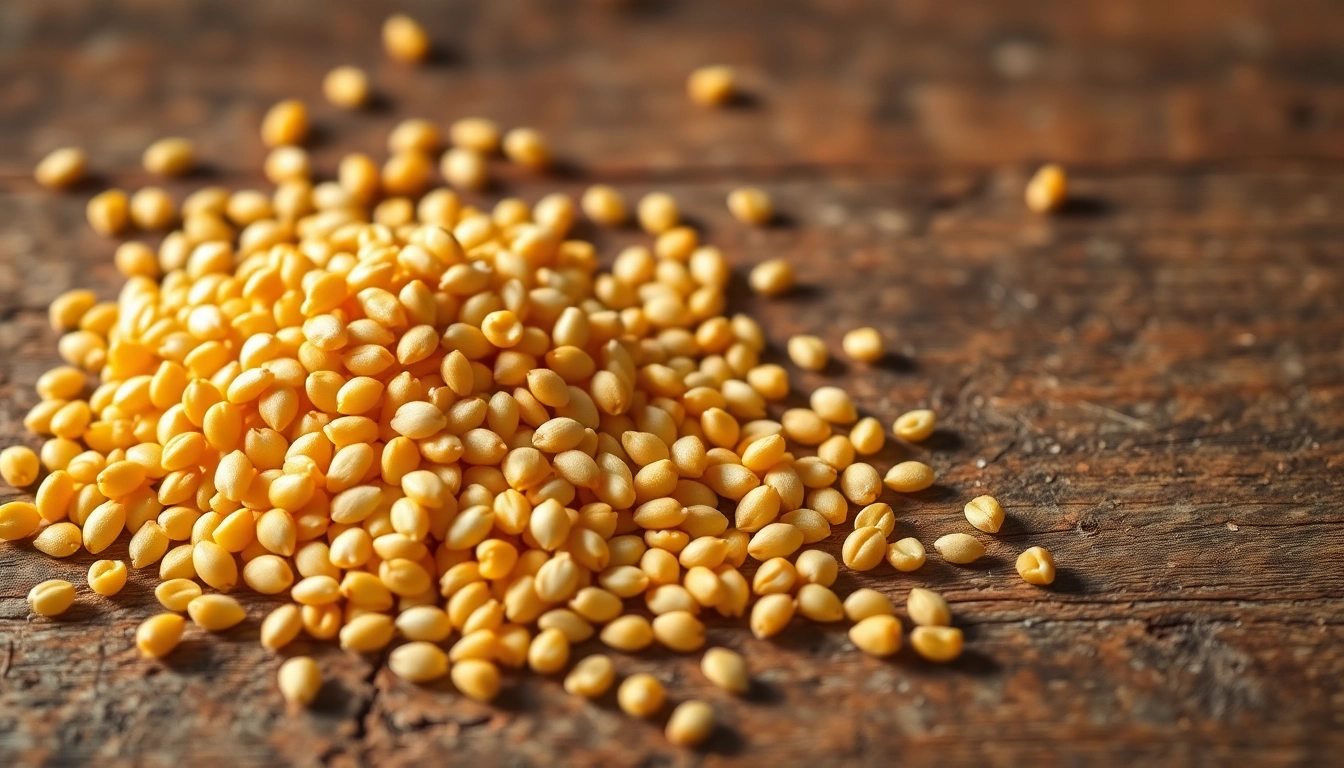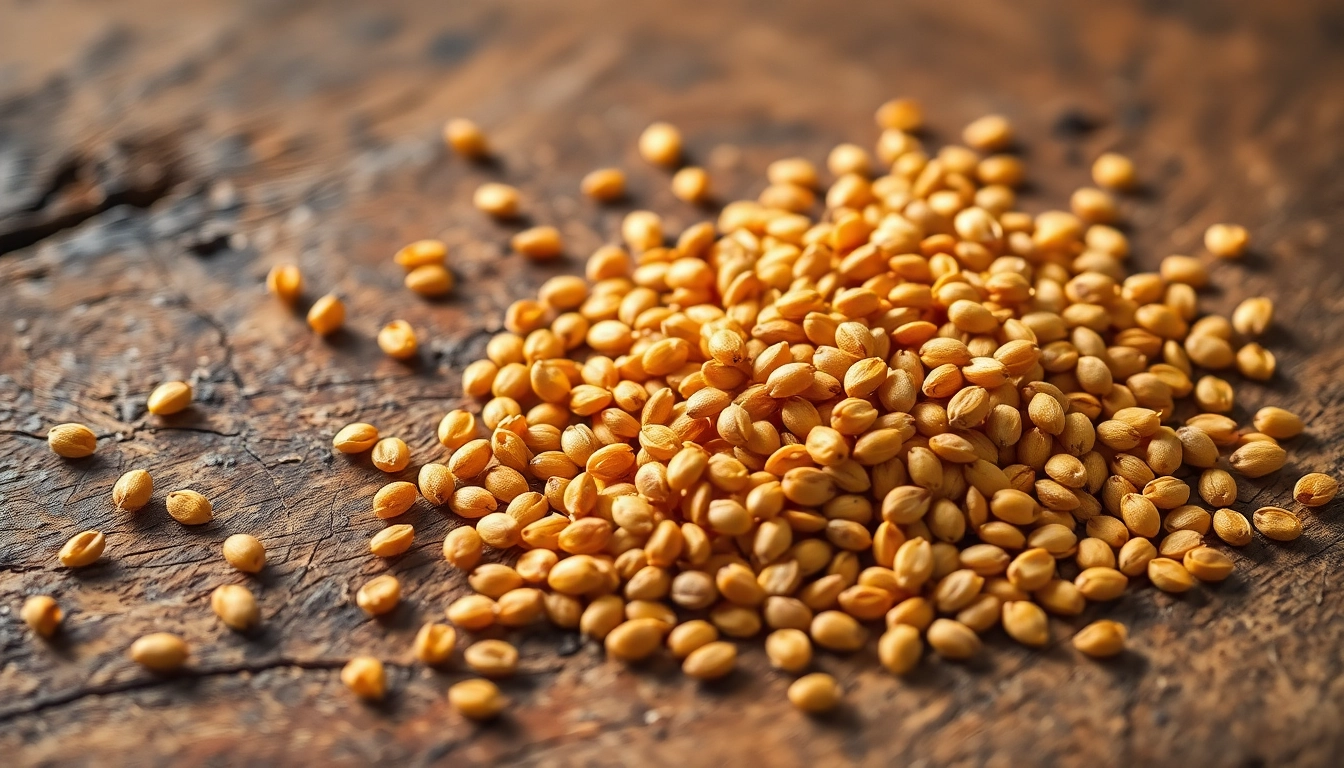Unlocking the Potential of Fenugreek Seeds: A Comprehensive Guide
Fenugreek seeds have long been celebrated for their multifaceted culinary applications and numerous health benefits. As a leading manufacturer and exporter of authentic spices including high-quality Fenugreek Seeds, Spice Nest offers products that meet international standards, certified and trusted by clients worldwide. Whether incorporated into traditional recipes or used as functional food ingredients, fenugreek seeds provide a distinctive flavor and a wealth of nutritional advantages. This guide delves into the origins, selecting methods, culinary uses, health benefits, industry trends, and future opportunities surrounding fenugreek seeds, empowering you to harness their full potential.
Understanding Fenugreek Seeds: Origins and Nutritional Profile
History and Traditional Uses in Various Cuisines
Originating from the Mediterranean, Middle East, and Indian subcontinent, fenugreek seeds (trigonella foenum-graecum) are ancient spices with a rich cultural heritage. Traditional medicine systems like Ayurveda and Unani have employed fenugreek for centuries, attributing restorative and therapeutic properties to it. In Indian cuisine, fenugreek seeds are indispensable in spice blends such as garam masala and are used to flavor pickles, curries, and dals. Middle Eastern and North African dishes also utilize fenugreek for its aromatic qualities, often incorporated into stews and bread. Its longstanding history underscores its versatility and revered status in global culinary traditions.
Key Nutritional Components and Their Health Benefits
Fenugreek seeds are nutrient-dense, packed with dietary fiber, protein, vitamins (notably B-complex and vitamin C), and minerals such as iron, magnesium, and manganese. Notably, they contain alkaloids and saponins that contribute to health effects like blood sugar regulation and cholesterol management. The high fiber content aids digestion and promotes satiety, making it beneficial for weight management. Rich in antioxidants, fenugreek supports immune health, while compounds like diosgenin have anti-inflammatory properties. Scientific studies confirm that moderate inclusion of fenugreek in diets can assist in managing diabetes, reducing inflammation, and enhancing skin health, among other advantages.
How Fenugreek Seeds Distinguish Themselves Among Other Spices
What sets fenugreek apart from other spices is its unique combination of flavor and functional benefits. Its slightly bitter, nutty, and maple syrup-like aroma adds depth to dishes, while its nutritional and medicinal properties offer functional health benefits. Unlike most spices that serve solely culinary purposes, fenugreek functions as a herbal supplement, supporting metabolic health and hormonal balance. Its high-quality extracts and powders have also found applications in dietary supplements and functional foods, differentiating it from conventional spices and elevating its status in health-conscious markets.
Selecting and Purchasing High-Quality Fenugreek Seeds
Identifying Genuine and Fresh Fenugreek Seed Suppliers
Procurement of authentic, fresh fenugreek seeds begins with selecting reputable suppliers who adhere to quality standards. Trusted manufacturers like Spice Nest provide certified products that undergo rigorous quality checks. Genuine suppliers will often offer transparency regarding sourcing regions—favoring Indian, Egyptian, or Mediterranean origins—and provide detailed certificates of analysis (COAs). When assessing suppliers, verify their certifications such as ISO, HACCP, or organic accreditation, which ensure purity and safety. Sampling products before large orders and reviewing customer testimonials further safeguards sourcing decisions.
Factors to Consider: Grade, Packaging, and Certifications
Quality grade classification (such as A-grade or premium quality) reflects the purity and freshness of fenugreek seeds. Packaging plays a crucial role in maintaining seed integrity—look for airtight, moisture-proof bags, often vacuum-sealed or nitrogen-flushed, to preserve aroma and prevent spoilage. Certifications such as organic, non-GMO, and export standards are vital indicators of quality and compliance with international regulations. Additionally, transparent labeling, including batch numbers and expiry dates, ensures traceability and freshness.
Tips for Evaluating Packaging and Storage to Maintain Quality
Proper packaging safeguards fenugreek seeds from humidity, contaminants, and oxidation. Opt for supplier packaging that features UV-protective materials and resealable closures. For optimal storage at the consumer or enterprise level, store seeds in cool, dry, and dark environments, away from direct sunlight and moisture sources. Using airtight containers and desiccants can further prolong shelf life. Regularly inspecting stored seeds for signs of mold, off-odor, or discoloration ensures ongoing quality assurance.
Incorporating Fenugreek Seeds into Your Culinary Creations
Popular Recipes and Traditional Dishes Using Fenugreek Seeds
Fenugreek seeds are foundational in crafting a variety of authentic dishes. In Indian cuisine, they are roasted lightly and added to spice blends, chapatis, and lentil dishes. For example, in making the classic methi aloo (fenugreek leaves with potatoes), dried seeds are used in tempering to develop a nutty aroma. Middle Eastern recipes like falafel and various stews also incorporate ground fenugreek for flavor. Beyond traditional dishes, fenugreek enhances vegetarian curries, chutneys, and pickles such as mixed and garlic pickles, where its aromatic profile adds depth and complexity.
Best Practices for Grinding, Soaking, and Storage
To maximize flavor, lightly roast fenugreek seeds before grinding to release essential oils. Use a dry spice grinder for a fine powder suitable for spice mixes or curries. For certain recipes, soaking seeds in warm water softens their texture and reduces bitterness; it’s especially beneficial when preparing pastes or chutneys. Store ground fenugreek in airtight containers, preferably refrigerated or in a cool, dark place, to prevent rancidity. Whole seeds, when stored properly, retain their quality for up to a year, allowing flexibility in culinary applications.
Innovative Ways to Enhance Flavor Profiles with Fenugreek Seeds
Beyond traditional uses, fenugreek seeds can be employed innovatively in gourmet dishes. Infuse oils with fenugreek for dressings or marinades, add toasted seeds to trail mixes for a nutty flavor, or incorporate ground seeds into baked goods like bread and crackers. Chefs frequently use fenugreek in vegetarian and vegan recipes to add umami depth. Its natural sweetness pairs well with honey or maple syrup in glazes, and the seeds’ unique aroma complements roasted vegetables or dips, elevating everyday food experiences.
Health Advantages and Functional Uses of Fenugreek Seeds
Potential Health Benefits Backed by Scientific Research
Extensive research supports fenugreek’s capacity to aid in blood sugar regulation, due to its soluble fiber and bioactive compounds. Studies indicate that regular consumption can improve insulin sensitivity and reduce fasting blood glucose levels. Moreover, fenugreek’s high antioxidant profile helps combat oxidative stress, potentially lowering the risk of chronic diseases. Its impact on lipid profiles includes decreasing LDL cholesterol and increasing HDL, making it beneficial for cardiovascular health. Additionally, fenugreek’s anti-inflammatory and hormone-regulating properties have shown promise in managing menopausal symptoms and supporting lactation.
Integrating Fenugreek Seeds Into Wellness Routines
Incorporate fenugreek into daily diets through teas, smoothies, or capsules, as part of natural health regimens. Many wellness enthusiasts use fenugreek supplements, but consuming the seeds directly in recipes, such as in curries or roasted snacks, ensures natural intake of fibers and phytochemicals. For nursing mothers, fenugreek is traditionally used to enhance milk production, although consultation with healthcare professionals is recommended. Consistency and moderation are key to maximizing health benefits without adverse effects.
Safety Tips and Recommended Intake Guidelines
While fenugreek is generally safe for most people when used in culinary amounts, high doses may cause gastrointestinal discomfort or allergic reactions in sensitive individuals. Pregnant women should consult healthcare providers before using fenugreek supplements, as it may stimulate uterine contractions. Typical culinary doses—about 1-2 teaspoons of seeds daily—are considered safe for most, but exceeding this can lead to side effects. Always purchase from reputable sources and adhere to recommended serving sizes to ensure safety and efficacy.
Market Trends and Future Outlook for Fenugreek Seed Industry
Global Demand and Export Opportunities
The global market for fenugreek seeds is experiencing steady growth, driven by increasing awareness of natural health products and culinary diversity. The rise of organic and gluten-free industries boosts demand for certified organic fenugreek. Leading exporting countries like India and Egypt supply Europe, North America, and Asia-Pacific regions, where consumer interest in functional foods is surging. Additionally, processed fenugreek products—such as powders, capsules, and extracts—offer lucrative opportunities for manufacturers aiming to diversify product offerings and enter emerging markets.
Emerging Processing Technologies and Product Innovations
Advancements in processing methods, including cold pressing, microencapsulation, and extraction of active compounds, are enhancing fenugreek’s functional applications. These technologies enable the development of concentrated extracts, flavor-enhanced formulations, and shelf-stable ready-to-use products. Innovations such as fenugreek-infused beverages, health bars, and dietary supplements align with consumer preferences for convenience and health benefits. Sustainable processing practices and eco-friendly packaging further position fenugreek products favorably within green consumer markets.
Strategic Insights for Farmers, Manufacturers, and Exporters
For growers, adopting organic cultivation methods and focusing on regions with favorable climates can improve yield quality. Ensuring compliance with international standards and certifications enhances export potential. Manufacturers can invest in R&D to create value-added products like fortified pastes or specialized capsules, appealing to health-conscious consumers. Building robust supply chains, establishing quality control systems, and participating in global trade shows—such as Biofach and other international expos—are vital strategies. Overall, understanding market dynamics and consumer trends will empower stakeholders to capitalize on fenugreek’s growing global appeal.



